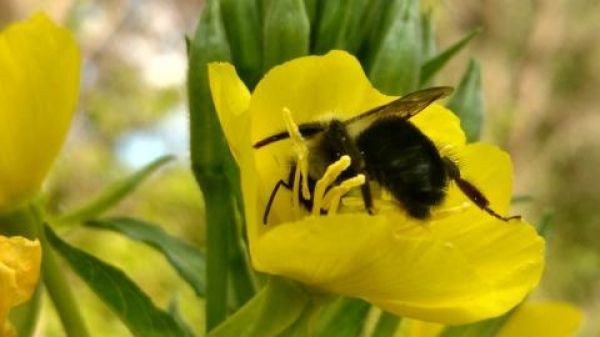Wild bees are indispensable pollinators, supporting both agricultural productivity and the diversity of flowering plants worldwide.
But wild bees are experiencing widespread declines resulting from multiple interacting factors. A new University of Michigan-led study suggests that the effects of one of those factors—urbanization—may have been underestimated.
The study, led by a group of current and former U-M students and conducted at sites across southeast Michigan, looks at one aspect of this topic they say has received scant attention from bee researchers: the sex ratio of wild bees and how it changes across a rural-to-urban land-use gradient.
The team found that the sex ratio of wild bees became more male-dominated as urbanization increased, mainly driven by a decline in medium- and large-bodied ground-nesting female bees. The study, published March 6 in the journal Scientific Reports, is believed to be the first investigation of observed sex ratio in a complete wild bee community along a rural-to-urban gradient.
Read more at University of Michigan
Image: Wild bees are indispensable pollinators, supporting both agricultural productivity and the diversity of flowering plants worldwide. (Credit: Paul Glaum)


